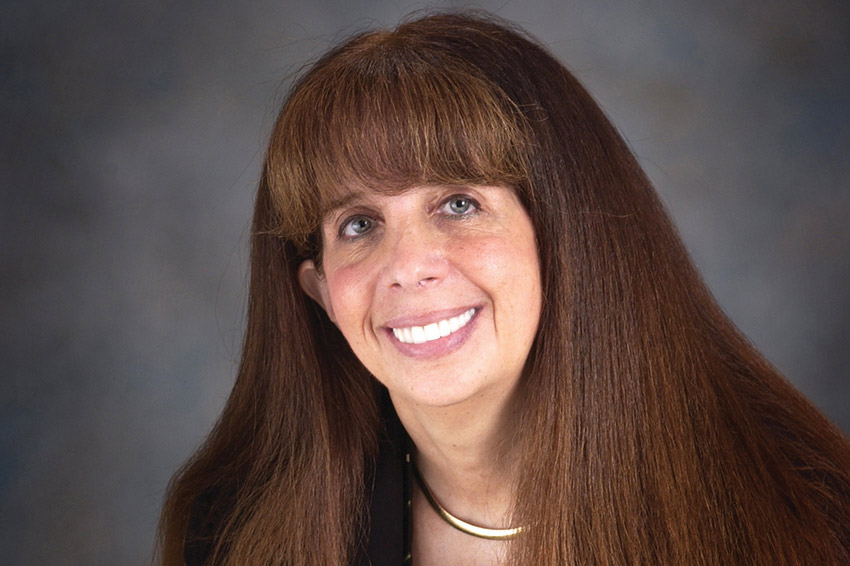
Dr. Razelle Kurzrock uses molecular profiling technology to provide cancer patients with targeted, personalized treatment. “This type of thinking ultimately is going to spread beyond the cancer field,” she says.
We’re taught as children that each of us is unique and special. It turns out that’s true—at least when it comes to the way Dr. Razelle Kurzrock develops cancer therapies. Kurzrock is Senior Deputy Director for Clinical Science at UC San Diego’s Moores Cancer Center and heads up the Center for Personalized Cancer Therapy and Clinical Trials Office. For Kurzrock, it’s not about where in the body the cancer is growing, but what’s going on inside the cancer cell itself—and that can be distinctive to every human being.
Why is the work you do important?
In the past, [a cancer] diagnosis was based on “Where did that cancer originate?” Did it originate in the breast? Well, then you have breast cancer. If it originated in the colon, you have colon cancer. We achieved that diagnosis by looking under a microscope at the surface of the cell.
Now what we are able to do is look deep into the cell, not just on the surface, but examine the depths of the cell by looking at the DNA and other similar molecules to really identify precisely what's wrong with that cell and how it became a cancerous cell.
We can now precisely identify what is driving that tumor, why is that tumor growing. It may be growing because there's a genomic abnormality that is pushing it to grow.
We can identify those abnormalities precisely and, moreover, we now have drugs to target many of those abnormalities, so we can match patients with the exact drug that matches what is wrong with their tumor.
What are the influential/exciting developments happening in your field now and why?
Just to give you a sense of the breathtaking pace that this technology is moving: The first human genome was sequenced in about 2003, and it cost about $3 billion. Around 2007 the cost to sequence a single human genome dropped, to only $100 million. A big improvement, but obviously not something that insurance would cover. Today it costs between $1,000 and $5,000 to do the sequencing.
At the same time, drug companies have been busy developing lots of drugs that match each of these abnormalities. The basic science has really borne fruit in the clinic, and the FDA over the last, I'd say 3 years, has just been working at an incredible pace approving these drugs.
What’s the next big thing?
We've really applied this to cancer, but this type of thinking ultimately is going to spread across all illnesses and almost certainly beyond the cancer field. If you go into any type of health problem, understanding the underlined biology with these powerful techniques, and matching patients with the right drug is almost certainly going to be the next breakthrough for all of medicine.
How big of an impact will your field play in shaping the future of the San Diego region and beyond?
I do think we're (UC San Diego) at the forefront of doing this for the country, really for the world. I think we're now one of the top centers in this field.
I absolutely believe that we're going to change cancer in the next few years, either curing previously lethal cancers or making them into chronic manageable diseases that people can live with. I want to be careful not to over-promise because I see where cancer patients hear these promises and they think that they've been promised a cure. But I absolutely believe that's on the horizon.
Hop into your time machine…what does the future look like for this field in 50 years? How can individuals/companies get prepared for what’s next?
We know that drugs can be designed on a computer, and we call it silicone modeling. And we also know that the alteration in the patient’s cancer can be modeled on a computer (we've actually had a very strong collaboration with the UC San Diego Supercomputer Center). And we try to pick the best drug for the patient. I can see where within 50 years, maybe even sooner, we will model on the computer what is wrong with the patient, and the computer will design and print a drug for that patient.
That sounds like science fiction, but that's what I see in 50 years.
Want to know more? Explore our certificate programs in Diagnostics and Medical Technology, or learn more about our Master's Degree in Drug Development & Project Management.